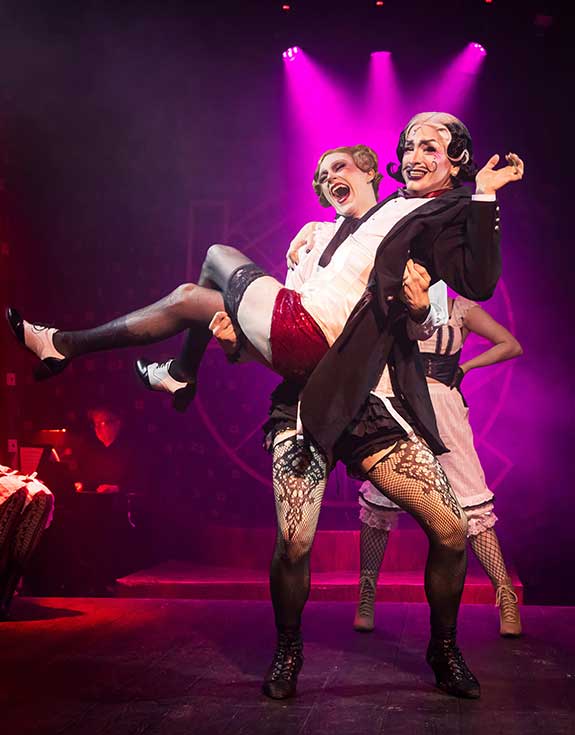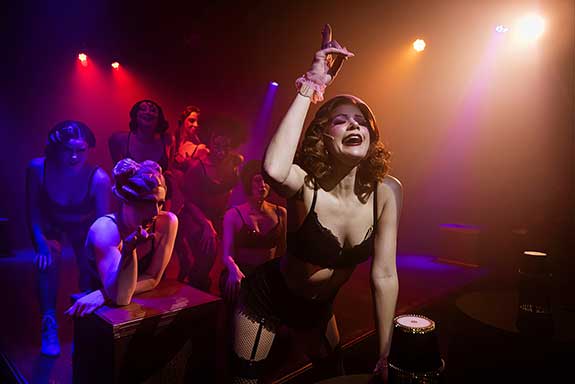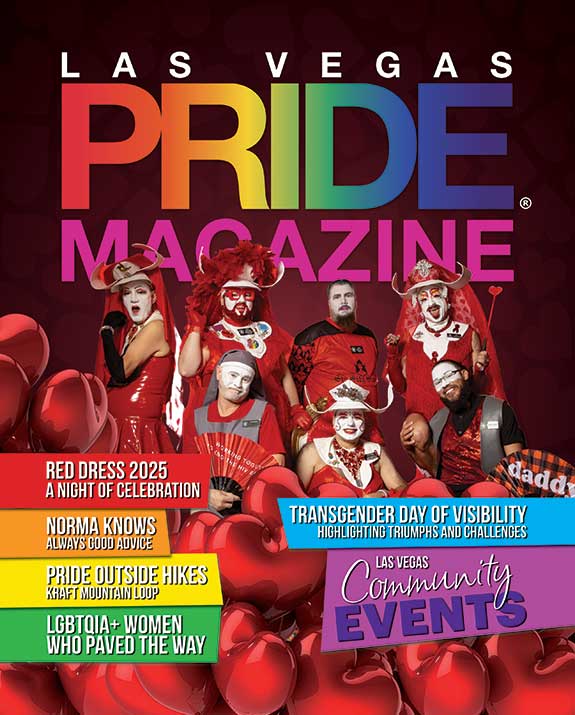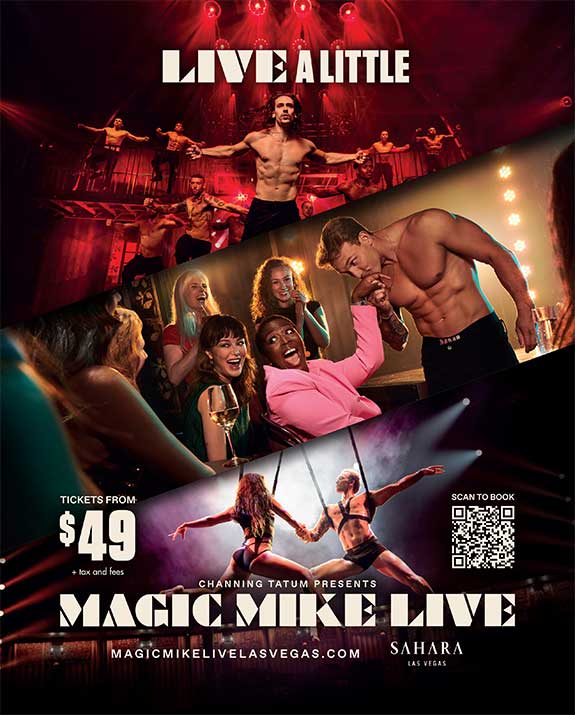Leave Your Troubles Outside at The Majestic Theatre
By Jennifer Howe (They/them) / Photos by Chase Stevens
Before diving in, a spoiler warning: this piece contains details about Majestic Repertory’s production of Cabaret, now playing in the Arts District.
Inspired by the writings of queer author Christopher Isherwood, Cabaret transports audiences to Berlin between 1929 and 1933—a city of unrestrained hedonism and artistic freedom, soon to be crushed by the rise of Hitler and the Nazi Party. Once a thriving hub of queer culture, Berlin’s decadent nightlife would soon become a relic of a fleeting era. The musical immerses us in this intoxicating world, centered around the infamous Kit Kat Klub, where performers and patrons seek refuge from an increasingly dangerous reality.

At the Majestic Theatre, the setting enhances the experience, with small tables surrounding a central platform stage, the theatre transforms into the club itself. We are first welcomed into the club on New Year’s Eve, 1929, by the Emcee, played by Steffan Scrogan, who captivates in stunning androgynous drag. They introduce the vibrant and diverse cast of Kit Kat Klub performers, whose group numbers exude sexual energy and playful chemistry, creating an atmosphere where queerness thrives. The Emcee invites the audience to “Leave your troubles outside,” but as the show unfolds, the sinister presence of fascism creeps in—drawing an unsettling parallel to our own modern world.
At its heart, Cabaret follows American writer Clifford Bradshaw, who arrives in Berlin seeking inspiration but instead finds himself swept up in a whirlwind romance with English cabaret singer Sally Bowles. Their relationship is passionate yet tumultuous, reflecting the instability of the times. Meanwhile, their landlady, Fräulein Schneider, finds love with Jewish fruit vendor Herr Schultz, only to face heartbreak as fear and antisemitism tear them apart. Overseeing all of this is the enigmatic Emcee, whose presence serves as both a seductive distraction and a grim reminder of the world outside.
Katie Marie Jones shines as Sally Bowles, perfectly capturing her character’s reckless charm and later delivering a breathtakingly vulnerable performance. As Fräulein Schneider, Annette Houlihan Verdolino begins with a lighthearted resilience in “So What,” but by Act 2, she brings out a raw, relatable fear that lingers with the audience.

Though Cabaret seduces with its dazzling performances and immersive spectacle, it is more than just entertainment. It is a warning—reminding us of the dangers of complacency, the fragility of freedom, and how history has a way of repeating itself.
In Act Two, Director Troy Heard makes a stark tonal shift from the playful decadence of the first half to a chilling reality where the rise of fascism becomes inescapable. Clifford Bradshaw, played by Ray Winters, becomes the lone voice of resistance, refusing to cooperate with the Nazis. Yet, despite his moral convictions, he ultimately chooses to flee—a decision that underscores the helplessness many felt as oppression took hold. Winters and Jones share compelling onstage chemistry as Cliff and Bowles, both delivering standout performances as their characters struggle with the encroaching darkness.
The intermission, which includes a lively dance-off and a roaming saxophonist, provides one last moment of levity before the atmosphere takes a dramatic turn. As Act Two begins, the Emcee reappears in a striking ringmaster-inspired costume, maintaining an air of theatricality. However, by the show’s end, Steffan Scrogan’s Emcee is nearly unrecognizable. Now clad in a stark conservative suit, their once-flamboyant persona is gone, replaced by a cold, masculine, and restrained demeanor. No longer engaging in playful winks with the audience, the Emcee has become stern and distant—a transformation that signals something deeply unsettling.
As the final moments unfold, each character makes a fateful choice. Sally dismisses the growing political dangers, clinging to her reckless escapism. Cliff, realizing the futility of resistance, escapes. Fräulein Schneider chooses self-preservation, while Herr Schultz convinces himself that staying quiet will keep him safe. But the most haunting transformation belongs to the Emcee, who, in a gut-wrenching conclusion, joins the Nazi Party—slipping a red armband onto his sleeve as the show comes to a close.
Director Troy Heard delivers a powerful statement in the final tableau, as the cast returns to the stage in silence. The band has stopped playing, their vibrant costumes replaced by stark, black and gray conservative clothing. The trans character, now out of drag and in a suit, underscores the erasure taking place. The somber atmosphere lingers, leaving the audience in stunned uncertainty—even applause feels uneasy. Unlike previous productions, this ending carries a haunting weight.
Heard’s message is clear: fascism isn’t just a distant threat; it exists within our communities, even among those we think are allies. The realization that we may be outnumbered lingers long after the curtain falls, making for a deeply unsettling and powerful conclusion.
This article was originally published in the 2025 Spring Issue of Las Vegas PRIDE Magazine, and can be read in its original format here.


